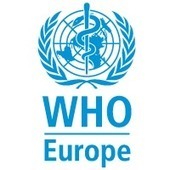For the vast majority of us, 2021 is poised to be the year we each get the COVID-19 vaccine. But for women who are pregnant or breastfeeding there's a question about whether or not they should take it. They weren't included in the vaccine trials.
SAN FRANCISCO (KGO) -- For the vast majority of us, 2021 is poised to be the year we each get the COVID-19 vaccine. But for women who are pregnant or breastfeeding there's a question about whether or not they should take it. They weren't included in the vaccine trials. Serena Meyer is a registered nurse and lactation consultant who runs the popular Facebook group, "Bay Area Breastfeeding Support." She says many of the women in her group have expressed concerns. "The topic of, 'Is this safe? Do I have to ween?' has come up quite a bit," Meyer said. Alison Flower, a frontline health care worker in Oakland and mom to a 10-month-old, is one of those members. "Any mom is going to be scared about protecting their kid. Any mom is going to be scared about protecting their pregnancy," Flower said. "I think all of us just want to do what is best for our children." So, is it safe? According to Dr. Stephanie Gaw, an Assistant Professor of maternal-fetal medicine at UCSF who has been studying the impacts of COVID-19 on pregnant women, the medical consensus is yes.
"Scientifically, there's probably very, very low risk of anything bad happening during pregnancy with the vaccine, but we don't have any direct proof yet because it hasn't been studied, unfortunately," Dr. Gaw explained. Although there is no clinical data yet, Dr. Gaw said there were roughly 20 participants in the COVID-19 vaccine trials who ended up getting pregnant or were vaccinated before they knew they were pregnant. "There were no adverse outcomes," she said. "But of course the number is too low to really know how it would impact the broader community." Still, she said there are other reasons to believe the vaccine is safe. For one, Dr. Gaw said, the vaccine does not contain any live virus, which is something pregnant women are often advised to avoid. (For instance, the measles vaccine does contain live virus and is not recommended during pregnancy.) It's also a matter of assessing the risk versus the potential benefits. "The potential benefits of a vaccine working are great...we know COVID-19 is really dangerous in pregnancy," Dr. Gaw said. Both Dr. Gaw and Meyer are advising their patients to take the vaccine, especially if they are not able to fully quarantine and have the potential to be exposed. "Somehow pregnant people become these unicorns that can't have healthcare," Meyer said. "I don't think that's helpful." Dr. Gaw is now beginning a new study that will look at the impacts of the vaccine on pregnant women. She's hoping to have some preliminary data in six months. Until then, there is a little bit of an unknown. She said ultimately it's up to each individual woman, along with her doctor, to make the decision. "Talk to your family, your own risk," she said. "If I were pregnant right now I would get it. Definitely."



 Your new post is loading...
Your new post is loading...










